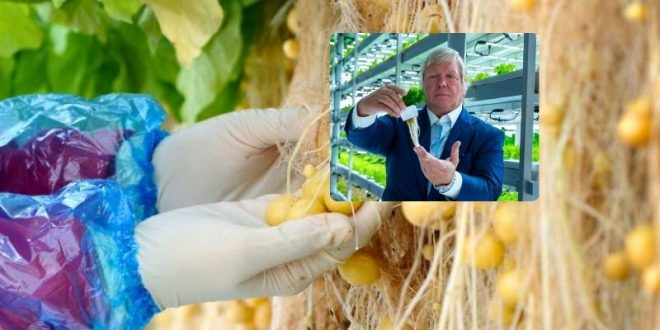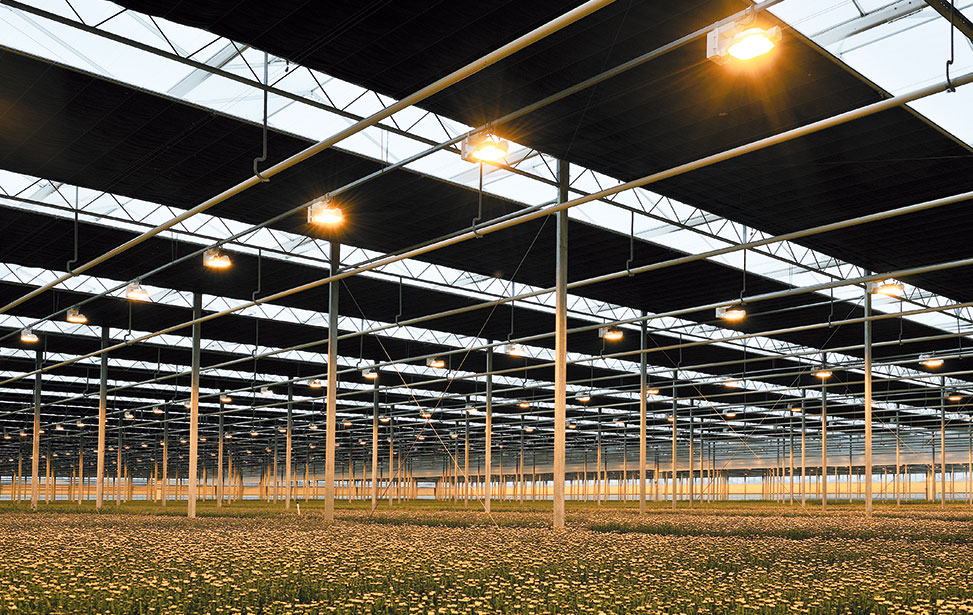In the heart of Dubai’s desert, Pure Food Technology is creating a vertical farm that grows new potatoes and other vegetables using cutting-edge technology. This innovative project uses robotics, solar energy, artificial intelligence and hydroponics to produce fresh, organic food in an environment where water is scarce but sunlight is plentiful.
In an ambitious bid to revolutionize agriculture, UAE-based sustainable agriculture and food technology company Pure Food Technology has launched a pilot vertical farm in Jebel Ali Industrial Estate in Dubai. Specifically designed for desert conditions, this farm uses advanced technology to grow vegetables, including new potatoes, in a controlled, soil-free environment.
Innovative farming methods
A vertical farm uses a hydroponic system, in which plants are grown by submerging the roots in a nutrient-rich aqueous solution rather than in soil. This method saves water and allows precise control of nutrient delivery. The integration of robotics and artificial intelligence ensures minimal human intervention, optimizing efficiency from planting to packaging.
Sebastian Carlton, CEO of Pure Food Technology, emphasized the system’s reliance on solar power and minimal water use, which is critical for desert agriculture. “This system was specifically designed for the desert, where water resources are scarce but sunlight is readily available. With minimal intervention, robotics and artificial intelligence, all you need is a source of water and solar energy,” Carlton said, as reported by Khaleej Times.
Sustainability and impact on society
This innovative farm not only promotes food security by producing fresh vegetables locally, but also contributes to the well-being of workers in the UAE. The products of this vertical farm are distributed to labor camps, providing access to fresh and nutritious food. Farm automation and artificial intelligence capabilities streamline operations, reducing the need for manual labor and increasing productivity.
Carlton emphasized the importance of introducing new technologies to meet the growing food needs of a growing population. “As the population grows, the only way to feed that population is to invest in new technologies in agriculture,” he said. This view is in line with the UAE’s vision of sustainable development and the use of renewable energy, striving for self-sufficiency in food production.
Overcoming Traditional Agricultural Constraints
Traditional agriculture has always been geographically dependent: crops were grown near water sources or in favorable climates. Carlton pointed out the restrictions this places on food production. Vertical farming technology eliminates these limitations, allowing produce to be grown in arid regions such as the desert. The farm’s water filtration system allows for the use of a variety of water sources, including salt water or unfiltered water, further increasing its adaptability.
“When we think about how we can revolutionize agriculture, we must focus on the use of land and not be limited to one area. With this system we can plant plants anywhere in the desert. One of our devices also filters seed-grade water, so any water, salted or unfiltered, can be used, so we’re not limited to water,” Carlton concluded.
Pure Food Technology’s vertical farm in Dubai represents a significant advance in sustainable agriculture. Using the power of robotics, artificial intelligence and hydroponics, this initiative not only addresses food security concerns, but also sets a precedent for future farming practices in dry regions. The success of this project highlights the potential of technology to transform traditional agriculture and pave the way for self-reliant and sustainable food production.












